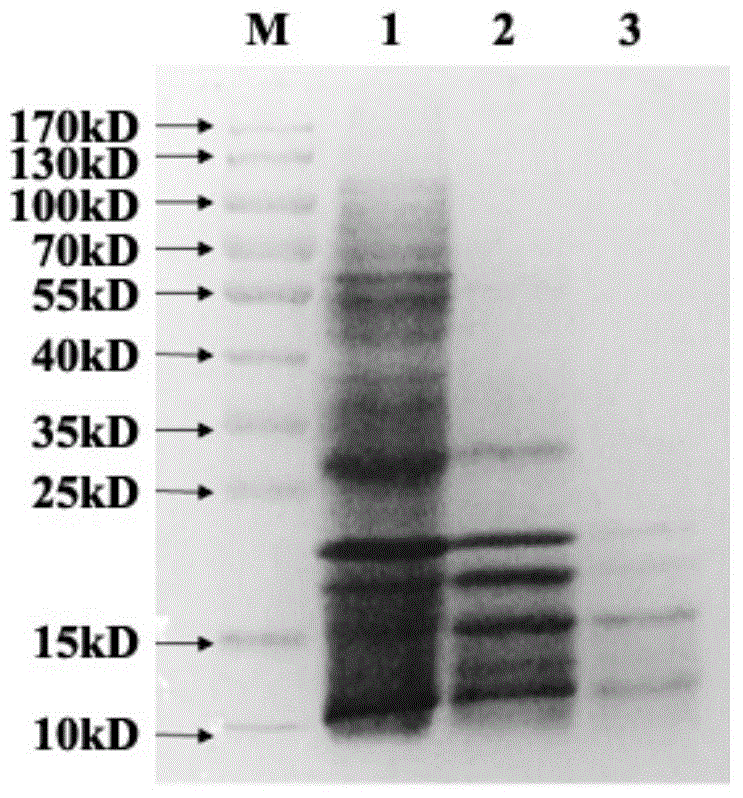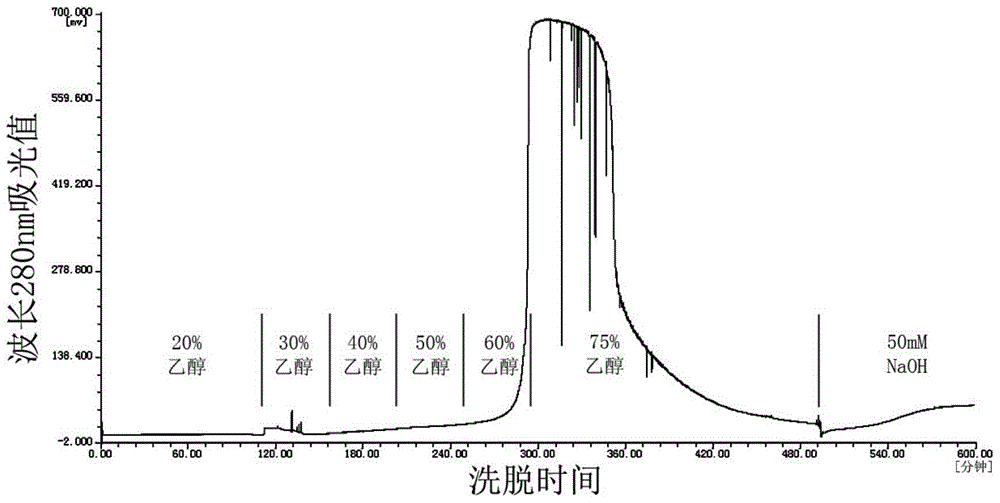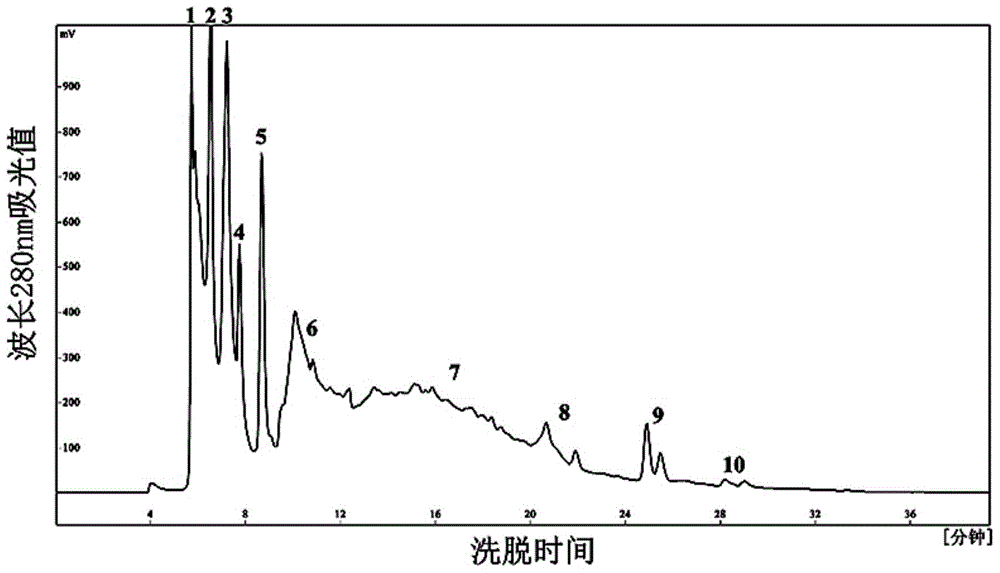Preparation method of spongia water-soluble peptides
A spongy, water-soluble technology, applied in the preparation methods of peptides, chemical instruments and methods, peptides, etc., can solve the problems of species, separation efficiency and scale limitations, and achieve a low sample load, convenient operation, and easy to scale up. Effect
- Summary
- Abstract
- Description
- Claims
- Application Information
AI Technical Summary
Problems solved by technology
Method used
Image
Examples
Embodiment 1
[0029] Water-soluble peptides were secondary isolated from panting moss sponges (Tedania anhelans (Lieberkuhn, 1859)) with a wet weight of 1.3 kg.
[0030] The moss sponge obtained by sampling in the sea area was stored in a -80°C refrigerator, and the first-level crude extract of water-soluble peptides from the sponge was extracted according to the following method:
[0031] 1) Weigh about 1300g of frozen moss sponge and crush it to a size of no more than 3cm;
[0032] 2) Pour in an appropriate amount of liquid nitrogen, and the high-speed pulverizer pulverizes the frozen sponge block into powder, each pulverization time is <60s, after the powder is poured out, melt properly, then add liquid nitrogen to re-agglomerate, and pulverize again;
[0033] 3) Add 2L lysis buffer, stir magnetically for 45min, and sonicate for 30min;
[0034] 4) Centrifuge at 8000×g at 4°C for 30 minutes to obtain 2.4L of supernatant, 21.6g of total protein measured by Lowry method;
[0035] 5) PALL ...
Embodiment 2
[0046] Static adsorption and desorption rates of water-soluble peptides in moss sponges by four kinds of macroporous adsorption resins.
[0047] 1) Moss sponge with a wet weight of 165g According to the steps 1) to 5) of Example 1, 350 mL of the filtrate of the MWCO5K membrane bag was obtained, and the Lowry method measured 0.44 mg / mL;
[0048] 2) Treat four kinds of macroporous adsorption resins according to the instructions of the resins: DA201-C, D101, NKA-9, AB-8, mix 1mL resin with 5mL MWCO5K membrane bag filtrate, shake in a chromatographic cabinet at 4°C ;
[0049] 3) Take 50 μL supernatant at 2h, 4h, 6h, and 16h after mixing, and measure the concentration by Lowry method;
[0050] 4) After 16 hours, remove the supernatant, wash with pure water 5 times, blot the liquid, add 5 mL of 75% ethanol, shake for 1 hour, and measure the concentration of the supernatant by the Lowry method.
[0051] 5) The results are shown in Table 2. DA201-C has better adsorption and desorpti...
Embodiment 3
[0060] Liquid chromatography-tandem mass spectrometry analysis of primary crude extracts of water-soluble peptides from sponges.
[0061] The first-stage peptide crude extract obtained in step 8) of Example 1 was dissolved in 0.1% formic acid and 5% acetonitrile solution at a concentration of 0.3 μg / μl, and the liquid Phase chromatography tandem mass spectrometry analysis. Liquid phase parameters: 10μl on the machine, first enter the guard column (C18PepMap100, 300μm×1mm, 5μm, ), followed by an analytical column (Acclaim PepMap C18, 15cm×75μm, 2μm, ) was analyzed at a flow rate of 0.2 μl / min, and the mobile phase gradient was 5% to 45% mobile phase B (acetonitrile, 0.1% formic acid) for detection at 150 min. Mass spectrometry parameters: positive ion mode, CID collision mode, 120000 resolution, mass range 1060-2850, NCE 35%, top15 ion intensity for MS / MS analysis ( Figure 4 and 5 ). Searching the moss sponge transcriptome data determined in our laboratory, 262 peptides...
PUM
| Property | Measurement | Unit |
|---|---|---|
| height | aaaaa | aaaaa |
| particle diameter | aaaaa | aaaaa |
Abstract
Description
Claims
Application Information
 Login to View More
Login to View More - R&D
- Intellectual Property
- Life Sciences
- Materials
- Tech Scout
- Unparalleled Data Quality
- Higher Quality Content
- 60% Fewer Hallucinations
Browse by: Latest US Patents, China's latest patents, Technical Efficacy Thesaurus, Application Domain, Technology Topic, Popular Technical Reports.
© 2025 PatSnap. All rights reserved.Legal|Privacy policy|Modern Slavery Act Transparency Statement|Sitemap|About US| Contact US: help@patsnap.com



